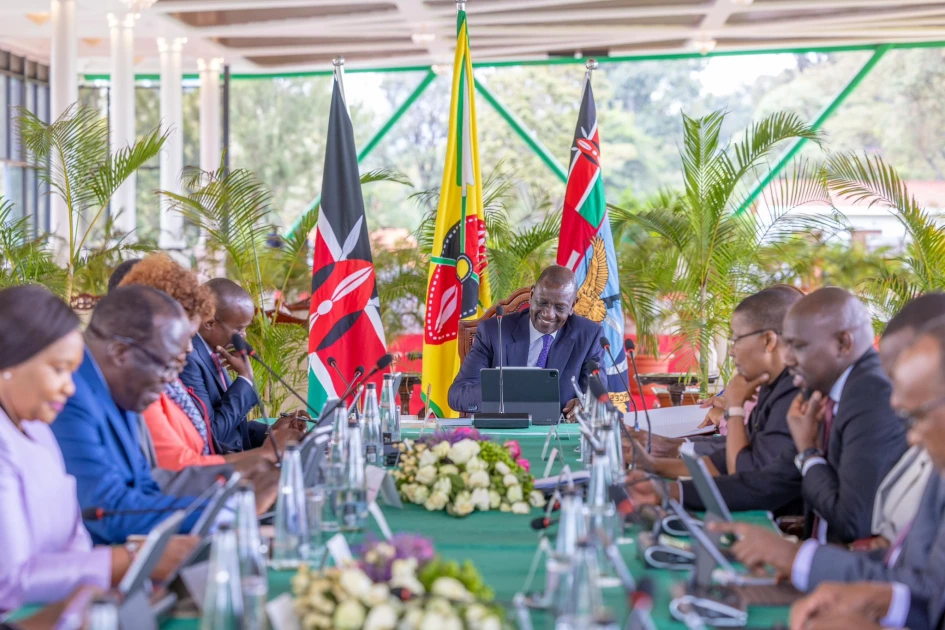Court dismisses petition to bar President Ruto's advisers from Cabinet meetings

President William Ruto chairs a Cabinet meeting at State House, Nairobi, on Tuesday, July 29, 2025. PHOTO|PCS

Audio By Carbonatix
The High Court has dismissed a petition seeking to bar four presidential advisers from attending Cabinet meetings, citing lack of credible evidence to prove they were permanent attendees.
The respondents
were Presidential Economic Adviser David Ndii, National Security
Adviser Monica Juma,
Women’s Rights Adviser Harriet Chiggai, and former UDA
Secretary General Cleophas
Malala.
Justice
Lawrence Mugambi ruled that petitioner Charles Mugane, a lawyer,
relied solely on newspaper reports rather than primary documentation to
challenge President William Ruto’s Executive Order No. 2 of 2023. The petition
alleged the order allowed the four to sit in on Cabinet proceedings.
“A newspaper
report is secondary evidence… it is not reliable as it can be prone to
manipulation,” Justice Mugambi stated, noting that Article 153(1) of the
Constitution requires Cabinet decisions to be in writing — and none was
produced in court.
The judge
acknowledged that granting non-members permanent Cabinet attendance would be
unconstitutional, but clarified that occasional invitations to advisers or
experts were within the President’s discretion.
Mugane and a
co-petitioner had argued that such inclusion breached Article 152, undermined
governance, and bypassed parliamentary oversight. They sought to have the
practice declared unconstitutional.
The advisers
denied the claims, with Malala stating none had attended regularly, and the
advisers insisting any participation was purely advisory and within the
President’s constitutional mandate under Article 131. They cited precedents
from the US, UK, and Canada, where advisers are occasionally invited to
high-level meetings without being Cabinet members.
The court
dismissed the consolidated petitions for lack of evidence and issued no order
on costs.


Leave a Comment